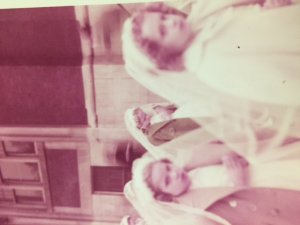I taught in a Catholic high school for 25 years and learnt, along with the students, a lot of church history.
In the time of ancient Rome when Christians hid themselves in the catacombs to partake in the eucharist, they were very guarded about who was allowed to witness the rite. Letting in the wrong person could mean arrest and execution for all.
To be admitted you had to receive instruction for over a year then you would be baptised, receive first communion and be confirmed by the bishop all in one day.
Later the three sacraments were separated out but the order remained the same and is to this day - baptism, first communion then confirmation.
In the Church of England (Anglicanism), which is in most parts of the world still a catholic church although separated from Rome, confirmation is still the final seal on baptism and a necessary requirement for receiving communion and full church membership.
In non conformist denominations such as Presbyterians, Methodists, Baptists etc confirmation is absent and baptism alone is the only requirement for church membership. In the Salvation Army even baptism has disappeared but if an adherent wishes to join the Army as a soldier or officer there are ceremonies for that where promises are made.
https://salvos.org.au/our-faith/find-a-church-near-you/officers-soldiers-and-adherents/


